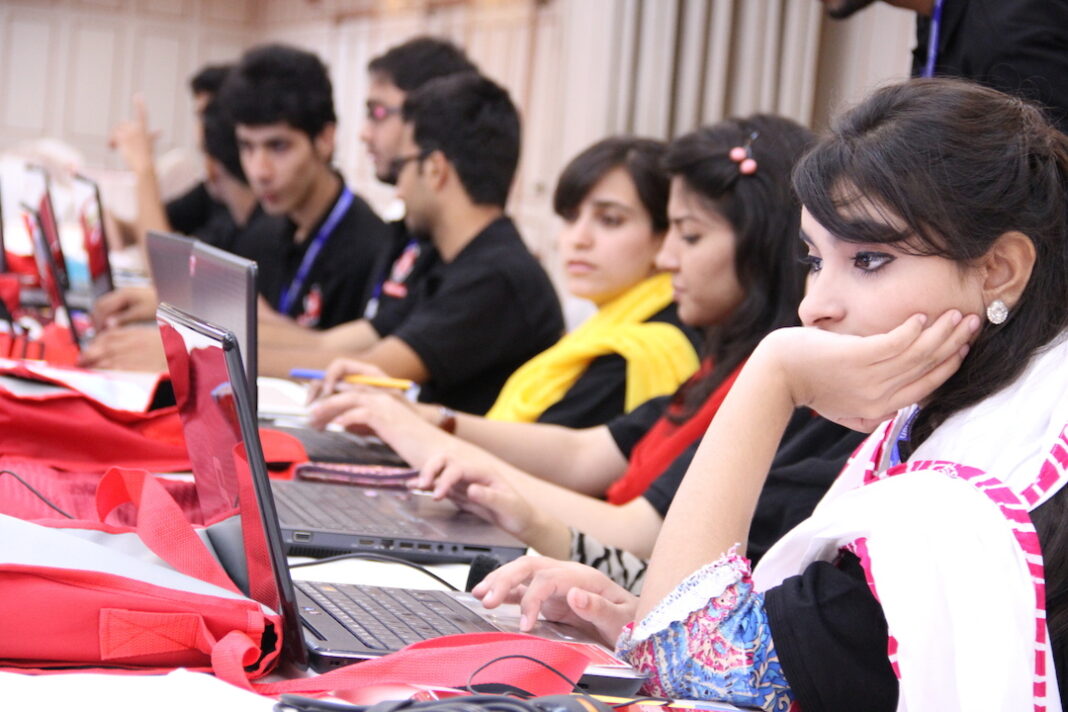By: Abdul Musawir Hakro

As the world undergoes a transformation into an alien society, with power shifting from humans to artificial intelligence, the voices warning against its dangerous possibilities are growing louder. Concerns are arising regarding the functionality of future social, economic, and political systems. It is inevitable that the AI takeover will lead to a mass useless class, incompatible with the new job market and its modern requirements. Only societies equipped with relevant expertise and education will survive this transformation, leaving those dependent on conventional education and pre-digital methods with mundane jobs.
Today, certain rights such as the right to be relevant and the right to digital technology hold greater importance than freedom of speech, the right to free education, or the right to religion. The future of humanity depends on individuals’ ability to acquire what is needed for tomorrow, including access to digital technology, modern education, skills, and any other sources that keep them up to date with the modern world. Access to information, often confused with people’s right to be relevant, primarily focuses on government policies and the democratic right of citizens to know how their tax money is utilized.
However, we are discussing access to digital technology, which nearly half of the world’s population lacks. International organizations are indifferent as human rights do not inherently include the right to digital technology. The right to education, as provided by the Universal Declaration of Human Rights (UDHR), lacks clarity and purpose. It fails to define whether digital or pre-digital education is a universal right and which education is useful for thriving in the job market.
In the AI revolution, the Western world might be immune to technological repercussions due to its preparedness, while countries like Pakistan and Somalia may face disintegration, lacking digital discourse and widespread technological job opportunities. Nevertheless, in this decade, we have reached a point where the reality of AI is indisputable. Examples like ChatGPT demonstrate its immediate impact. From answering questions and assisting with various tasks to revolutionizing industries with its ability to write scripts, papers, essays, compose code, and even create new forms of art, ChatGPT has transformed numerous sectors in the blink of an eye.
This signifies the urgency for us to accelerate our progress before it’s too late. To overcome future challenges, human rights must be redefined and incorporate new essential rights. Every individual should be granted the universal right to be relevant in terms of digitalization, biotech, modern education, and skills.
If we fail to address the growing disparities between developed and underdeveloped nations, the AI revolution will further divide humans into two classes. The first class will consist of a newly upgraded elite, enhanced by bio-engineering and brain-computer interfaces. The other class will be the useless class, rendered irrelevant and marginalized in a society favoring the privileged. This stark inequality will inevitably lead to catastrophe.
The writer is a student of law at SZABUL, Karachi. Can be reached at [email protected]








